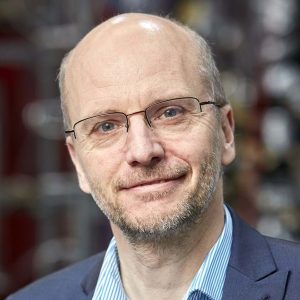C-Capture’s Founding Director, Professor Chris Rayner, was presented with an award for his contributions to society in the field of research and development (R&D) by the Society for Chemical Industry (SCI), Friday 22 September.
Chris was awarded the R&D for Society Award in recognition of his pioneering work in carbon capture technology and sustainable chemistry at the SCI Yorkshire and Humber Group Annual Awards. The award is presented to an individual or a team for R&D which provides a potentially major benefit to society.
C-Capture’s Founding Director, Chris is also a Fellow of the Royal Society of Chemistry and Professor of Organic Chemistry at the University of Leeds – where C-Capture’s journey began. Building upon his 20 years’ experience, Professor Rayner and his research team were working with CO2 to find new solutions to the carbon capture problem – their work attracted investment and C-Capture was born in 2009.

C-Capture’s proprietary, next generation technology is an innovation in the sector and a gamechanger for industries looking to decarbonise their processes. Based on fundamentally different chemistry that is amine free, C-Capture’s technology is environmentally benign. Extremely robust, it is suitable for use in industries that are difficult to decarbonise. It also uses less energy than current commercially available solutions and is lower cost.
The advantages of C-Capture’s solution mean it has the potential to break through the barriers that are currently preventing the widespread adoption of carbon capture technology to help reach net zero.
Professor Chris Rayner, Founding Director, C-Capture, said: “When I began my academic career as a synthetic organic chemist, I really didn’t expect to be working in an area so directly relevant to climate change, let alone contribute to developing a groundbreaking technology that really has the potential to make such a significant impact on CO2 emissions.
“I have been very fortunate to work with many talented and hardworking colleagues and students over the years, who have supported and influenced my career and my science. For C-Capture, Prof. Tony Clifford really opened my eyes to CO2 chemistry. And more recently, Dr Douglas Barnes and Caspar Schoolderman who were the first key members of our team here and have both been key to making C-Capture what it is today.”

Sharon Todd, Chief Executive Officer, SCI, said: “The core ethos of SCI is to harness a global scientific community, which promotes the adoption of innovation by industry for the benefit of society.
“Scientific innovation and sustainability are at the heart of everything we do. The contribution Professor Chris Rayner has made during his career – most notably in carbon capture technology and sustainable chemistry is outstanding and the advances made key for assisting in the delivery of net zero. We would like to congratulate him for the award in recognition of his achievements.”
Chris is also co-founder of Keracol, which is developing novel sustainable cosmetics and personal care products. His associated research activities at the University of Leeds include the Polyester Infinity research programme, which has the potential to revolutionise textile dyeing and decolouration as part of a circular textile economy.
The Society of Chemical Industry’s Yorkshire and Humber Group Annual Awards 2023 were presented on Friday 22nd September in the School of Chemical and Process Engineering at the University of Leeds. The event was attended by academia and industry representatives who are involved in the innovation process and interested in the latest scientific and technological advances. Chris delivered a lecture on his research and latest findings at the event, along with other award winners.